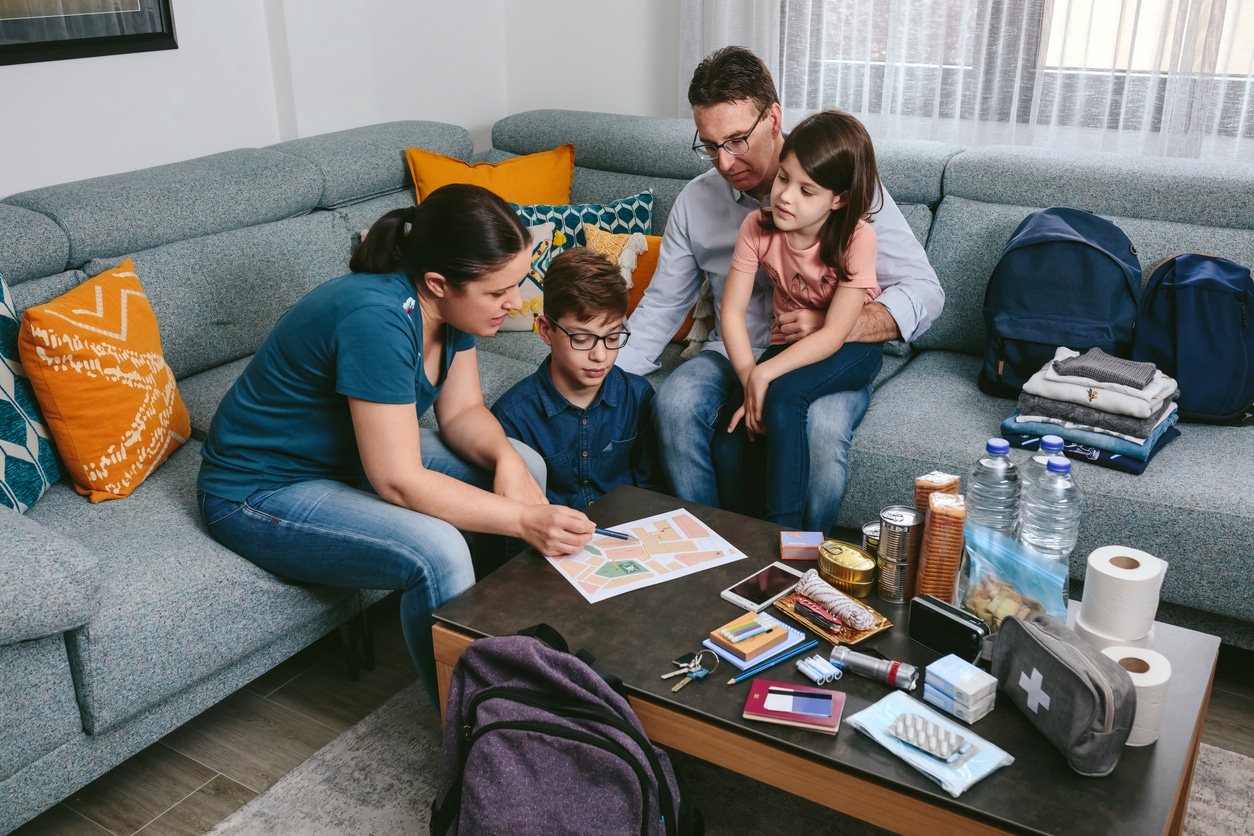Between floods, fires, earthquakes and storms, preparing for emergencies can feel a little daunting. Creating an emergency kit is a great way to ease into disaster preparedness. Emergency kits may require a few extra supplies for those with hearing loss. Let’s look at a couple of essential hearing loss additions to your emergency kit and some communication tips to use in the event of a disaster.
Packing Tips

All emergency preparedness kits should come packed with essentials like a first aid kit, flashlight, space blanket, ice packs, whistle, water and food. A couple of extra items to add to your hearing loss first aid kit include:
- Batteries and portable chargers. Approximately 28.8 million U.S. adults could benefit from the use of hearing aids. Hearing aids are essential in navigating an emergency with hearing loss. Pack extra batteries in a waterproof case in your kit to prevent dead batteries from interrupting your emergency communication. If your devices use rechargeable batteries, pack a spare set along with a charger and generator.
- Flashing beacon. With hearing loss, it may be difficult to hear or answer first responders. An emergency beacon is an excellent option for nonverbally communicating your whereabouts.
- Identification. Keep a copy of your identification documents and information regarding your hearing loss or other relevant medical conditions in a watertight envelope.
In addition to including extra batteries, a flashing beacon and identification in your emergency kit, it is wise to employ tactile emergency warning devices. Tactile devices rely on senses other than hearing to alert you to an emergency. For instance, flashing lights or bed shakers can act as smoke alarms or text alerts can be used in place of auditory emergency announcements.
Communication Tips
A few communication tips to use in an emergency include:
- Wear your hearing aids or other assistive listening devices during the emergency, only removing them when you sleep or they are in danger of being damaged.
- If possible, always remain with a buddy who can help you resolve communication issues and keep you informed during an emergency.
- Carry a pad of paper to write down important information or questions.
- Request a sign language interpreter.
- Request that first responders face you while they speak.
- Request speech-to-text software.
Resources and requirements will vary depending on the type of emergency you are experiencing. Always tailor your type of communication to the specific emergency.
While we hope emergencies will never happen, they may arise at any time. Preparedness through a hearing loss-friendly emergency kit and awareness of helpful communication techniques can help keep you safe. If you are interested in learning more about emergency preparedness, request information from the San Diego Red Cross.
For more information on managing your hearing loss, contact San Diego Hearing Center today to make an appointment with one of our specialists.